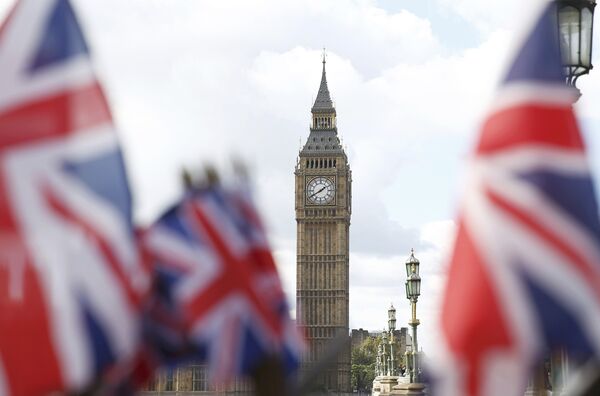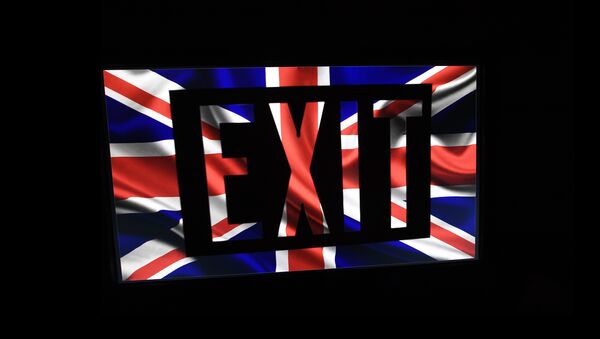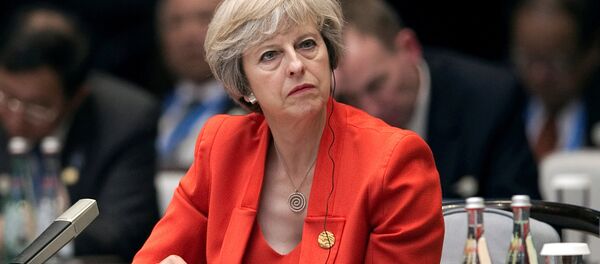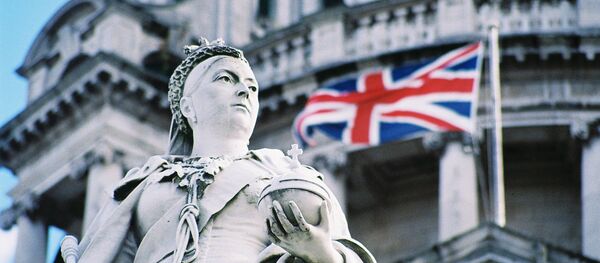However, May's contention that she has the powers — as prime minister — to trigger Article 50 has been challenged by a businesswoman, Gina Miller, and others, saying that May did not have the right to push the Brexit button alone, without the British Parliament being given a vote on the matter first.

The High Court in London, November, ruled that the British Parliament DOES have the right to vote on whether or not to trigger the mechanism for Britain to leave the EU, which could leave the path open for British politicians to have a significant say over the process of the Brexit negotiations as well as the terms of Britain's future relationship with the EU.
The issue has triggered a constitutional crisis: Does the British Prime Minister or its sovereign Parliament have the final say? And can the UK Parliament bend or even ignore the results of the referendum?
Royal Prerogative
The question, in law, centers on what is known as the "Royal Prerogative": the ancient power vested in the king or queen to make unilateral decisions over his/her parliament. It dates back centuries to when England was ruled by Kings and Queens who had total power over their people and there was no parliament as we know it today.
As time went by, more powers were devolved to parliament and Queen Elizabeth II today holds a largely formal, non-executive position. In practice, this is actually devolved to her prime minister.

Prime Minister May had argued she has the power to trigger Brexit negotiations without parliament's assent, but the legal challenge claimed that the outcome of the referendum itself is not legally binding and for the prime minister to invoke article 50 without the approval of Parliament is unlawful.
The decision of the High Court — that parliament has the final say on triggering Article 50 — will be the central issue before the Supreme Court, which is due to hear the legal arguments over four days beginning December 5.
The question before the Supreme Court is: Does the Government have power to give notice pursuant to Article 50 of the Treaty on European Union of the United Kingdom's intention to withdraw from the European Union, without an Act of Parliament providing prior authorization to do so?
The relevant answer lies in the interpretation of the European Communities Act 1972, which provides that:
"All such rights, powers, liabilities, obligations and restrictions from time to time created or arising by or under the Treaties, and all such remedies and procedures from time to time provided for by or under the Treaties, as in accordance with the Treaties are without further enactment to be given legal effect or used in the UK shall be recognized and available in law, and be enforced, allowed and followed accordingly."
Northern Ireland Questions
However, the issue is complicated in that both the Attorney General and the Court of Appeal of Northern Ireland have also made submissions. Decades of civil unrest in Northern Ireland were ended by a peace process that brought about the Northern Ireland Act 1998, the Belfast Agreement and the British-Irish Agreement.
Substantially, the agreements support the rule that "there can be no change to the constitution of Northern Ireland without the consent of the people of Northern Ireland and that withdrawal from the European Union would constitute such a change".
Advocates from Northern Ireland will join those from England is arguing for the UK parliament to have the final vote on any decision to leave the EU, which may also lead to politicians having the right to take away from Theresa May's Conservative Government control of the course of Brexit, which will have enormous implications.

Meanwhile, Counsel for the Scottish Government has been invited to address in their skeleton arguments the relevance of points of Scots Law — which is separate from English and Welsh law. Scotland — which voted to remain in the EU at the referendum — is watching proceedings very carefully to see if any legal option is open for Scotland to remain in the EU in spite of what Westminster decides.
The Supreme Court is expected to hand down its judgement in mid-January 2017 and sources suggest the UK Government is bracing itself for losing the case, which will mean the whole issue will have to return to the UK parliament where the political maelstrom of Brexit will have to play itself out.




